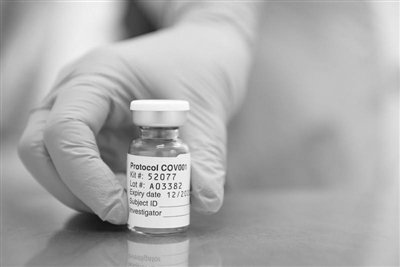January 22 that the website of the Science Daily published a report on January 11 entitled Why COVID-19 lasts longer and causes more damage than ordinary pneumonia. The full text is excerpted as follows:
Viruses such as bacteria or influenza viruses that cause pneumonia can spread to large areas of the lungs within hours.
In modern intensive care units, these bacteria or viruses are often controlled by antibiotics or the human immune system in the first few days of onset.
However, researchers at Northwestern University Hospital found that COVID-19 is different.
The study was published in the journal Nature on January 11.
COVID-19 does not quickly infect large areas of the lungs, but “open for business” in multiple small areas of the lungs.
It then “carrys” the lung’s own immune cells and uses them to spread to all parts of the lungs, a process that can take days or even weeks, just like multiple fire points spread to the whole forest. As the infection slowly spreads to the lungs, it will leave damage, continue to cause fever in patients with COVID-19, and cause low blood pressure and damage to the kidneys, brain, heart and other organs.
The authors of the study said that compared with other pneumonias, the serious complications of COVID-19 may be more because of its longer course than its severity.
This is the first time that scientists have systematically analyzed the lung immune cells of patients with COVID-19 and compared them with those of ordinary pneumonia patients.
Northwestern University Hospital will test an experimental drug in a clinical trial in early 2021 to treat these immune cells in patients with COVID-19.
The drug to be tested inhibits the inflammatory response of these immune cells, thus starting the repair process in the damaged lungs.
“Our goal is to make COVID-19 mild and make it akin to a bad cold,” said Scott Badinger, one of the senior authors of the study.
“This effort truly represents the ‘moon landing’ in COVID-19 research,” said another senior author, Richard Wandlink.
“Like the flu, COVID-19 cannot disappear completely, even if most people are vaccinated,” said Ben Singh, another author of the study.
Singer said: “Researchers at Northwestern University and elsewhere have predicted that this rapidly mutant RNA virus will develop some mechanism to avoid the current vaccine.
This study will help us develop treatments to reduce the severity of COVID-19.”
The study also reveals why patients who use a ventilator because of COVID-19 have a lower mortality rate than those who use a ventilator because of conventional pneumonia.
In patients with routine pneumonia), severe inflammation of the lungs means a higher risk of death. Although patients with COVID-19 have been ill for a long time, the inflammation of their lungs is not as serious as the former.
“If COVID-19 patients are taken care of and the health care system is not overwhelmed, it can help them through the difficulties,” said Badinger.
These patients are very ill. It really takes a long time for them to get better.
But if there are enough beds and care, the mortality rate can be controlled at 20%. If the health system is crushed, the death rate will double to 40%.”
To conduct the study, scientists performed a high-resolution analysis of pulmonary effusion in 86 patients with COVID-19 who used ventilators and compared it to effusion in 256 patients with other types of pneumonia who used ventilators.
Out of safety concerns, only a few groups around the world have analyzed the immune response to the lungs of patients with COVID-19.
Therefore, important information about what is killing severe patients with COVID-19 has always been missing.
What is unique about the study at Northwestern University Hospital is that Wandlink and his colleagues had been studying pneumonia for several years before the outbreak.
Therefore, after the outbreak, they were able to conduct a safe and systematic study of the lung fluids of patients with COVID-19 and compare it with the lung fluids they had previously collected in patients with severe routine pneumonia.



